- Home
- Roddy Doyle
Oh, Play That Thing Page 2
Oh, Play That Thing Read online
Page 2
No ocean, no edges, no return.
I climbed into the back of a waiting cab. The driver spoke over his shoulder.
—Where to?
—I want an American suit, I told him.
—Suit?
I had the rest of the anarchist’s cash burning a hole in the pocket of my old one.
—American, I told him. —A good one.
—Man wants a good suit, I’ll take that man to the man who’ll give him his suit.
—And after the suit, I want Douglas Fairbanks.
—The Thief of Baghdad? he said. —It’s the latest.
—Sounds like my kind of town.
—The Grand Opera House sound good?
—Does it show the pictures?
—Well, it certainly don’t show opera. I might even park the jalopy and join you.
—Let’s go, I said.
And we rode out into America. I looked out the window of the covered car, up at the sheer walls, and the new walls going up as I watched, and I saw the tickertape falling – the rest of them thought it was snow – on the taxi, on the street, on everything, for me.
It was too early for stars but I knew that my voice, steered by the glass and concrete, would meet them as they came out later on. I opened the door and, right hand gripping the running board, I hung out over the street as the car turned onto Park Avenue.
—My name is Henry Smart!
* Goodbye.
2
ELECTRIC RAZORS –
BOUGHT
SOLD
AND EXCHANGED
GUARANTEED REPAIRS
ON ALL MAKES
I was an honest toiler, paid to carry the honest claims of smalltime commerce through the streets and avenues of lower Manhattan.
STAR OPTICAL CO.
EXPERTS
GOOD RATES
333 PEARL ST
And I was value for money. Women’s eyes went from my eyes and, as they wondered about the rest of the handsome man inside the sandwich, they read the words and were very often sold. Women had their perfect eyes tested, bought electric razors for dead fathers and infant sons.
I carried a world of ceaseless invention, well hidden behind the plain words on the boards. Vacuum cleaners, electric ice-boxes, teeth that didn’t hurt. I promised a life of science and bang up-to-date ease. Ready-cut clothes, electric razors, music in every room. Spectacles for the working man, cigarettes for the working woman. I killed the day with words of my own. There’s a CAMEL just for you. I wrote and rewrote, filed slogans for my future use, got ready for the break.
I’d meet other sandwich-board men. I’d read the dull, literal words that, much more than the heat and weight, were pushing them into the sidewalk.
MAX’S FOUNTAIN PENS
ALL MAKES
REPAIRED
I’d measure the length and breadth of the wooden pages and, always, I saw waste and opportunity.
But then, as night raced through the avenues and time became my own, I changed the sheets on the boards and carried my own promises.
CARLMOR
CAFETERIA
THE BEST SANDWICH IN
NEW YORK
A full belly, jangling change.
GOOD EATS
CHEAP
CHEAP
CHEAP
Hettie had never known business like it.
—What crowds, what mouths! Thank you I can. But cope, I can not!
I paid the rent in what was left of my boot leather. The suit was new but the boots had once belonged to a dead man buried in Roscommon. My boards dragged the tired and hungry stiffs to the Carlmor. And the first sight of Hettie’s plenty terrified the ones who still had Europe in their guts. Drawn by my good looks and walking words, they pressed the brims of their hats to Hettie’s window. Then they crept further in, sold by the smells that came out with the swinging door, the eats under the glass bells on the counter, the meatloaf and cinnamon toast, Hettie’s famous Eskimo pie, won over by the prices that decorated the windows –
LARGE RIB STEAK
15c.
READ AND BELIEVE
and the sight of Hettie’s magnificent, flour-patted arms.
I slept in a room behind the cafeteria. Sometimes Hettie slept with those floury arms around me, and sometimes not, depending on her mood and how drunk her husband was and where he’d fallen. She was fifty or the other side of it. She’d had her children, all grown to men and women. She wasn’t sure how many, she said.
—Maybe seven.
—Boys, girls? I asked her as I sat at the counter.
Rudy Vallee whispered from the radio cabinet behind her. TIME TO EAT said the clock above her head, and 1.37, late night, very early morning. I’d just finished my dinner, bean soup, pot roast, two slices of bread and butter, apple pie and coffee – great value at 58c, and better yet because I wasn’t going to pay for it.
—Who knows? she said. —Who cares? Boys girls, both. What’s the ballyhoo?
She handled the language like the mince she choked with her long man’s fingers, forcing it into the shapes demanded by the menu. She’d come from some place further away than Ireland but she wasn’t telling me where.
—Don’t know the American for it, she said.
She roomed and fed me in return for the customers I hauled to her counter and she lay down on the mattress because she liked me. She wrapped herself around me, and that was all.
—You don’t want to get lost in an old chicken like me, she said.
—Yes, I do, I said.
—No no, she said.
And she held my head.
—Tell me the truth, my Henry, she said. —Am I older than your mama?
I thought about it.
—Yes, I said. —A lot older.
She laughed and pressed my face into the cotton that covered her stomach.
—Think of that, she roared.
* * *
I walked across and back across lower Manhattan, carrying the boards and the bottles hidden behind them. It was the fourth, and fifth, job I’d had since I’d arrived.
Beep Beep, the taxi driver who’d picked me up outside Grand Central, had taken me on to a rooming house run by a Dutchman, a sailor who hated the sea. The house was on Millionaires’ Row, still called that long after the last fat cat had legged it. The room was clean, the sheets were clean. I woke the next morning, ate the food that was the topping on the rent and went looking for work. I followed the smell to the river, and found some of the docks I’d seen from the Ellis Island ferry. There was work there for thousands. I saw the men waiting for the nod. The shape-up, a toothless Connacht man beside me called it. He was too old to get into the crush.
—Will we make it, d’you think, young fella?
I said nothing.
I’d seen it before, although the clock boss here was two feet taller than the dwarf with the eyes who’d ruled the Custom House dock, in Dublin. He let his eyes wander from face to face, and stop. He held out a toothpick and the lucky man had a job – for the day. The toothpick went behind the chosen lad’s ear and he marched off to work.
I turned away.
The familiarity of that routine – acceptance, rejection, daily pay and kickback – the Irish accents all around me, the red ears on the men dying for one of the clock boss’s toothpicks, they all told me to stay far away from the water, or as far as four or five avenues could get me.
I turned back inland and a few blocks in I found my first start, with a blacksmith, a big man called Thompson. I pulled lengths of still-warm iron from a huge drum of water, arms, joints and panels of iron that Thompson and his three sons would assemble and burn into the fire escapes that clung to every wall I’d seen since I’d arrived. I liked the work, enjoyed the heat as I felt it hardening me. But there were too many sulking Irishmen coming in and out of the foundry, lugging the still-soft fire escapes. I left without collecting my three days’ pay – a Corkman said he knew my face.
—I know your fuckin’
clock, boy.
I walked until my ears felt very far from home, to East Harlem and another job. I read the newspapers to Puerto Rican cigar makers, in a loft on 109th Street. These men rolled tobacco leaves and learnt their English twelve hours a day and I, their lector, read the Daily Worker, the Daily News and the Saturday Evening Post, my head swimming in the gorgeous stink of the world’s best tobacco. As they got to know me and my voice, they brought in books of their own, that their daughters got for them from the branch library – Les Misérables, The Jungle and McTeague – and they learnt to gasp and cry in English, and they lingered long after they were knee-deep in panatellas and listened until I got to the end of the book or chapter. I read in a fog of tobacco sweat, for more than a month. But I walked again. I left when one of those small men put a knife to my throat; I’d just closed The Call of the Wild with five pages to go. I had to pick it up and finish it while the blade leaned into my neck.
I walked downtown through the night and, early the next morning, the air from the East River tempting me to the docks, I was saved by an undertaker. He was struggling with a heavy roll of canvas and, curious and hungry, I stopped and helped him, up narrow steps and more steps, into a small room full of good dark furniture and a dead man. He thanked me, took off his stovepipe hat, wiped his head with a kerchief that shone like a mirror and offered me a job. So I started hefting for him. Mister Grass’s caskets came with mourners, if wanted, lace curtains for the windows, and backdrops – landscapes on old canvas, badly painted chunks of home – a Sicilian village, the Tower of London, a river that passed for any of the thousands that had been left behind. The one I’d carried for him was the river. I thought it was the Liffey at the Strawberry Beds as I watched him hoist it behind the dead man on the table. But, no, he said, today it was the Danube.
—Five, six times out of ten it is the Volga.
—Is it ever the Shannon? I asked.
—One time, said Mister Grass. —The departed admired the tenor voice of John McCormack. But he himself was Polish.
He gave me a stovepipe hat and taught me how to say, ‘I’m sorry for your troubles’ in eleven different languages. I buried his share of the Lower East Side dead, with his brother and, now and again, his son.
—Grass & Son, he said as he showed me how to get a tie onto a dead man who wasn’t co-operating. —My dream. But Grass and a Corner Boy is what I get. He will grow out of it, says the missis. He is thirty-four, thirty-five, I tell her. I will pray for him, she says. Pray for the corner, I say. Second and 11th.
One day, at Grass’s mortuary, I found bottles of hooch inside one of the caskets. I held up one of the bottles and shook it. I knew the trick: if I saw bubbles the contents were on the reasonable side of bad. There were no bubbles in this bottle but I could still feel its possibilities. It was dangerous stuff, the property of hard men, its route from coffin to mouth already sewn up and guarded. But it was money and I needed some, so I walked up to the two men who came in later to stare into the coffins with & Son.
—Are you lads looking for help?
I took my beating, nothing to it, and got up off the floor. The hard men left. & Son followed them but he came straight back.
—Am I in? I said.
—Up to me, you’re dead.
—So, what do I do, Pavel?
—That’s Paul.
He sent me to Johnny No. (And I forgot all about the hard men.) I picked up the bottles from a tall blond kid, an alky-cooker who called himself Fast Eddie but whose real name, his sister told me, was Olaf. Fast Olaf lived with his sister and his dying mother, on the fourth floor of a five-storey Orchard Street tenement. I met him three or four times a week on the roof, under the shadow of the wooden water tower, in a forest of chimneys, pigeon coops and new radio antennae – the air is our theatre – more of them every time I went up there. Fast Olaf’s gin stills and bathtubs were hidden under the pigeons on all the rooftops along his block. He handed over the hooch, bottled and brown-bagged, and I hid the bottles in the muslin pockets that were tacked to the insides of the sandwich boards, front and back. Then I’d go and meet his customers, shrinking, skinless men leaning into walls at street corners, and women, purple-eyed, crumbling on the steps of other people’s buildings, all of them dying but always punctual. I’d hand over the horse sugar, and they’d produce the readies, and no one really watched or cared or tried to stop us. The hand of Prohibition never reached to the depths that these men and women had dropped to. They always paid something, cash – coins and the odd sodden note. Fast Olaf’s booze was killing them and they were going out on the instalment plan. It was bad liquor, gin only because Fast Olaf called it gin, until he added tea to the mix and it became malt whiskey. I’d even seen him pour some of Grass’s embalming fluid into the bath. Dead homers and tiplets decorated the Orchard Street sidewalks. Paralysed by the fumes from Fast Olaf’s stills, they took off but couldn’t flap. But Fast Olaf knew his market. Even without Prohibition, his experiments would have been their drink of choice.
—Pre-war imported, I said as I handed over a brown-bag.
My client dropped small money onto my palm. He took the top from the bottle without opening the bag and drank big through the paper.
—You brighten the joint, he said as he walked away, when he was able to speak again.
Manhattan was the Big Bottle. There were thirty-two thousand dives and speakeasies on the island, Fast Olaf’s sister told me.
—I been in all of them, daddio.
But Fast Olaf’s clientele had always chosen the benches and weeds. Not for them the teacup and phoney Scotch label; they wanted his poison clean and honest. I brought the loot back to Fast Olaf, minus my 15 per cent. I watched him count the money, his face travelling across deserts of sums and figures.
—How’d he get to be called Fast? I asked his sister.
—He can fuck a girl in ten seconds, easy, she said.
—You’ve seen her?
—I am her. I’m only his half-sister, she added.
—That’s fair enough, I said.
—Damn right. His daddy’s not my daddy; that’s fair game in this girl’s town.
—He pays you?
—Because he wants to. Makes him feel like the big cheese, see. And that’s okay. And, hey listen. I’m gonna tell him about that five per cent you was telling me about.
—Unless?
—You give me three.
—But this, I said.
I waved a hand over her. She was on her back, right under me, giving it the Henry Ford. Sewing machines, dozens of them, whirred and clacked in the rooms right under us; they invaded our work, sent lint up through the floorboards.
—This. This is free, right?
—Right.
—Okay, doll, I said. —You’ve got yourself a deal.
—You can put it in my mouth for three and a half.
—No no, I said. —This’ll do fine.
—Fine is fine, she said. —But you got to have ambition in this life, you know.
—Next time, I said.
—This time is always the last time, daddio, she said. —My heinie is available too.
And she put a finger on mine.
—Go on, she said. —Don’t be a sis.
And she stretched back off the bed – she was a long, long, good-looking girl – and, with her hair dusting the floor, she yelled at the wall.
—Shut the fuck up, Ma!
At her dying mother who was pounding her side of the wall with a shoe or mallet or the front of her head.
—Bring soup!
The tiny kitchen was no man’s land between them. Her mother had the box-room with a view of the airshaft. I never saw her. Fast Olaf’s half-sister had the bigger front room, with a view of lower Manhattan.
—How come? I said.
—Who pays the rent? she said. —And what’s it to fucking you?
—Soup!
—Shut up!
The city of the good time, the Big Noise. I wa
s there three months and I felt at home. And I felt that way because it was no man’s home. It was too big, too fast; nothing stayed fixed. I knew the blocks, the corners, but that wasn’t enough. This was the city that fell and rose every day, the city that was colonising the sky. A man with ambition just had to look up to meet his possibilities. I did it all the time. And I listened. To the clock that hung higher above Manhattan than the men on the girders. I could hear it clearly. I could feel its beat.
I had 18 per cent of Fast Olaf’s gin money. Olaf was forking out for my adventures with his half a sister. It was still my honest boast: I’d never paid for a ride. I had plans. I had the measure of the town. Those who got on lived by the clock hanging over it. I listened to the clock. The city that dished out the time. It could be bought and spent, borrowed, stolen, wasted, fucked and killed. Time was money. Time was life. It was up to me.
I stood at the corner of Broadway and Fulton. In the stew of noise, heat and the smells that came from the market. The grinding wheels, the buzz and stink of crawling engines, the shouts of vendors and buyers – Yiddische Morgenjournal! Yiddische Morgenjournal! – German, Russian, East Side English, pidgin-everything, fighting through air trapped by the walls, and the quilts and sheets that hung dead across the street on pulley lines. My suit was wringing wet. My Clarence Darrow suspenders – lavender; I’d walked for days looking for a pair – were sawing through muscle and sinew, pulling me to the ground. I pushed my pearl-grey fedora to the back of my skull. I stood there in my sandwich –
HARVEY’S HATS
246 BEEKMAN STREET
I listened. I could hear the clock. I turned from Fulton and looked up Broadway. It was all there and it went on forever, the backbone of the whole world, in neat, expendable blocks. The clock was ticking, measuring out the din and commerce of the Fulton Street market, and all the other markets and stores and dives and emporiums and brothels and freak-shows and arcades and picture palaces and dens and nightclubs and churches and roadhouses and dance halls and banks – further and further, as far as I needed to see, over the hill that was the horizon, and further, all the way into America, right through the continent, slicing a path clean through it. Ticking away, beating just for me. I could feel it in my feet and bones. Counting down to my birth. It was up to me. Time was life. Time was money.

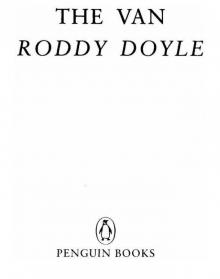 The Van
The Van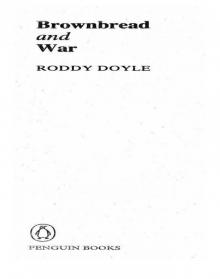 Brownbread & War
Brownbread & War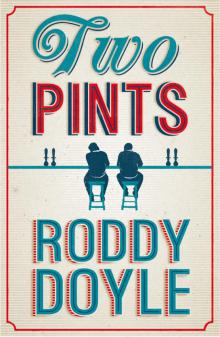 Two Pints: A Collection
Two Pints: A Collection Rover and the Big Fat Baby (Giggler 4)
Rover and the Big Fat Baby (Giggler 4)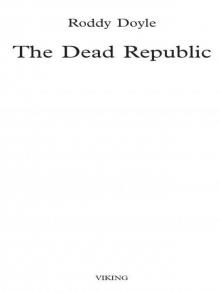 The Dead Republic
The Dead Republic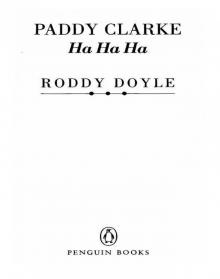 Paddy Clarke Ha Ha Ha
Paddy Clarke Ha Ha Ha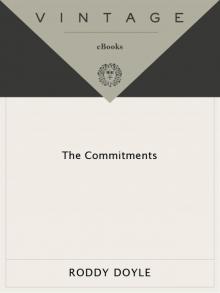 The Commitments
The Commitments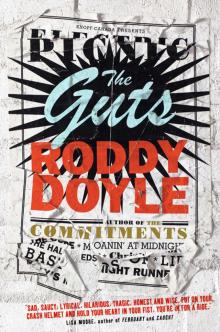 The Guts
The Guts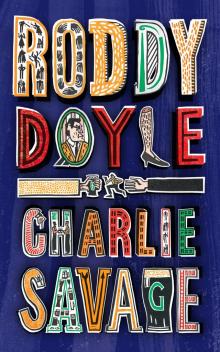 Charlie Savage
Charlie Savage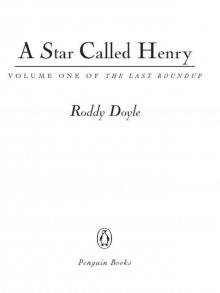 A Star Called Henry
A Star Called Henry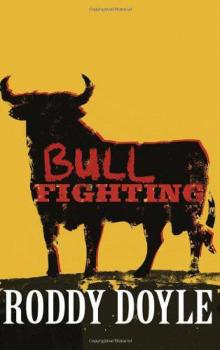 Bullfighting: Stories
Bullfighting: Stories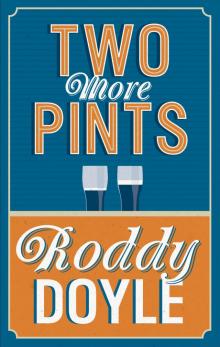 Two More Pints
Two More Pints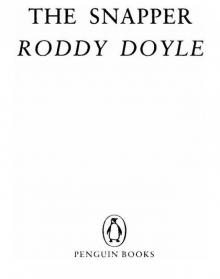 The Snapper
The Snapper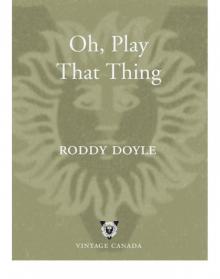 Oh, Play That Thing
Oh, Play That Thing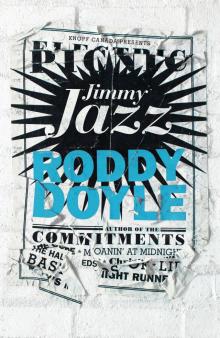 Jimmy Jazz
Jimmy Jazz Paula Spencer
Paula Spencer Wilderness
Wilderness The Woman Who Walked Into Doors
The Woman Who Walked Into Doors The Deportees
The Deportees Rover and the Big Fat Baby
Rover and the Big Fat Baby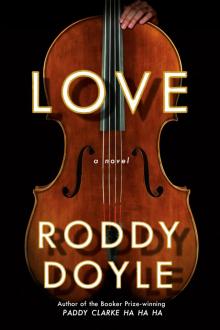 Love
Love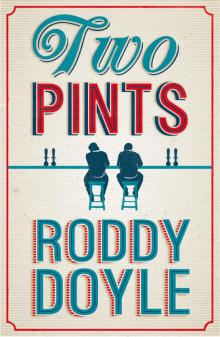 Two Pints
Two Pints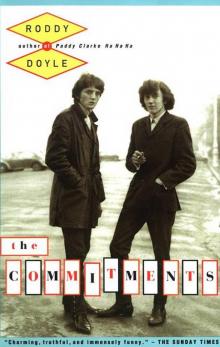 The Commitments b-1
The Commitments b-1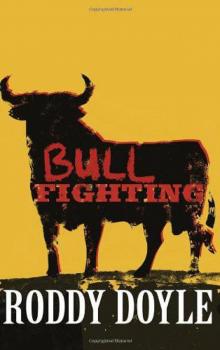 Bullfighting
Bullfighting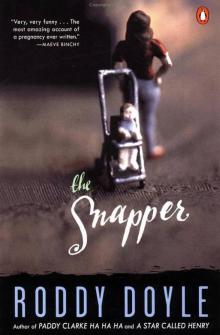 The Snapper b-2
The Snapper b-2